From Tourism to Conservation: Julius’ Journey and Lessons Learned
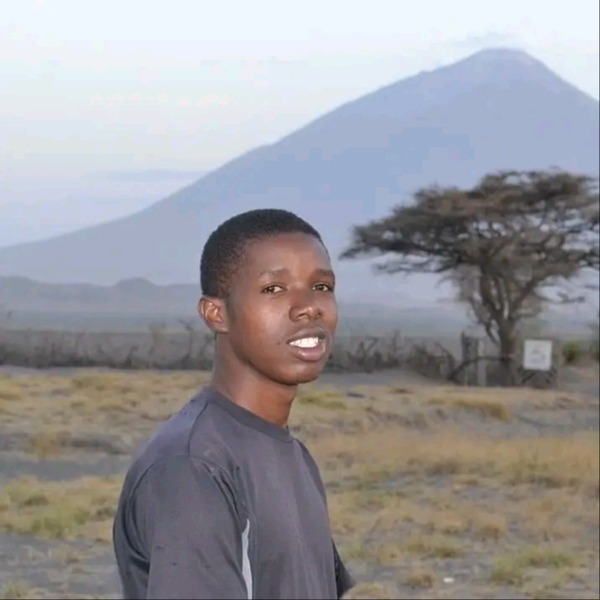
WildHub: A place where tourism and conservation come together in harmony, fostering inclusive global conservation efforts to protect nature, support communities, and promote sustainability. Tourism can help protect nature, while conservation makes sure future generations can enjoy its beauty. By using the power of human touch, safari guides can connect with travelers and turn their experiences into ways to support conservation.
In this insightful discussion, we explore how tourism and conservation are closely linked, learning important lessons, facing challenges, and understanding the role we all have in creating a wasteless world. One inspiring voice in this conversation is Julius Saitore, a safari guide who brings a deep passion for conservation into every journey. Before joining the tourism industry, Julius volunteered with the Jane Goodall Institute as a school coordinator, educating youth on environmental protection and leading local tree-planting initiatives. He also served as an educational coordinator at Project Rose, working to empower communities through fully funded scholarships and sustainability education.
As a guide, Julius views travel as an opportunity to spread conservation values. He practices a "trash in, trash out" ethic wherever he goes, showing that even small actions can contribute to a better, cleaner world. His favorite activity—walking safaris—reflects his belief in tourism that respects and protects nature. Join us on this journey of learning and action, inspired by Julius’s experience and commitment!
Here’s what he shared:
Ussi: Hi Julius, I’m happy to e-meet you here and discuss our shared commitment to the well-being of Tanzania and our planet.
Julius: Hi Ussi, it’s great to e-meet you too! I’m excited to talk about conservation and how we can work towards a better future for both people and wildlife.
Ussi: It's fantastic to hear, Julius! It’s clear that both people and animals can do well when we focus on sustainable actions that promote harmony. Given your background in both tourism and conservation, I’d love to know—how has your experience working in the tourism industry influenced or complemented your conservation efforts?
Julius: Working in the tourism industry has strongly influenced my passion for conservation. As a tour guide, you are not just showing people the beauty of nature — you are also a conservationist. You need to love people, animals, and the environment. I realized the importance of conservation because it helps protect natural resources. When we take care of these resources, they continue to exist and provide benefits — not only for the environment but also for the economy. They generate significant revenue for the country and support people’s livelihoods. So, my work in tourism naturally guided me toward playing an active role in conservation.
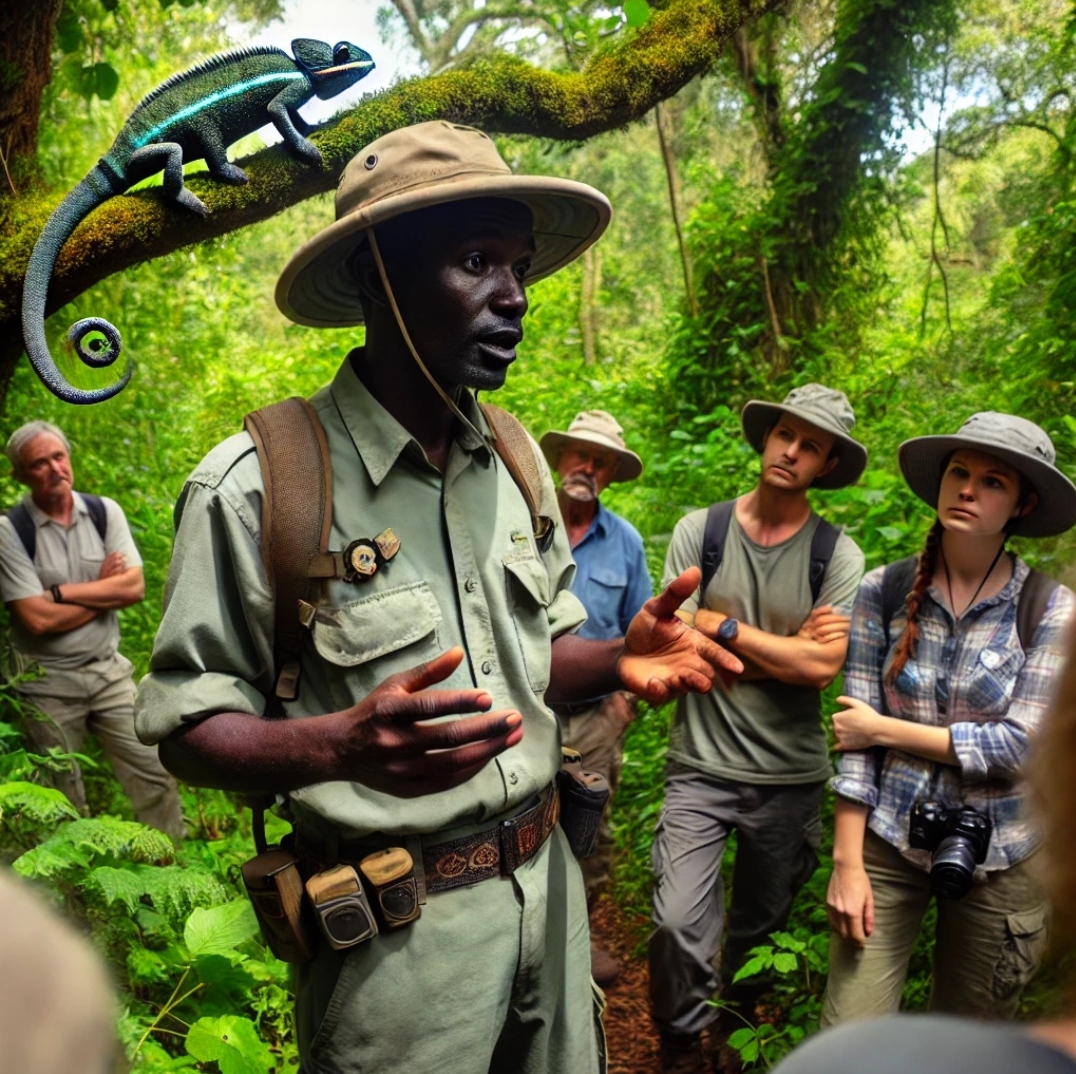
Ussi: That’s a fantastic perspective, Julius! Your work in tourism beautifully complements your conservation efforts by highlighting the value of protecting natural resources, benefiting both the environment and the economy. Your approach is a great example of how tourism can support conservation.
As a safari guide, how do you share conservation messages with tourists—and is there a moment that really stands out for you?
Julius: Sharing conservation messages with tourists is not difficult because I start by explaining the natural resources we have, their importance, and why they still exist today. Once they understand this, it becomes easier to show them that we must take care of these resources and use them responsibly. That’s why conservation is so important.
I don’t have one particular standout moment, but I believe the best way to communicate these messages is through conversation. Since I work for a company, I follow its policies and guidelines while sharing these insights.
Ussi: That’s a great approach, Julius! By engaging tourists in meaningful conversations, you’re not just educating them—you’re also inspiring them to become part of the conservation movement. Every conversation plants a seed of awareness that can lead to responsible actions, making an impact that lasts even after they leave. Where do you see the future of conservation and sustainable tourism heading, especially in Tanzania?
Julius: I believe the future of conservation and sustainable tourism is promising. Many conservation organizations are actively working to raise awareness about the importance of protecting our natural resources. Their efforts are making a real impact.
However, we still face challenges, especially when it comes to technical challenges and professional expertise. Overcoming these obstacles will be key to ensuring long-term success in conservation and responsible tourism.
Ussi: That’s an insightful perspective, Julius! It’s encouraging to see progress, but as you mentioned, addressing challenges like technically challenge and professional expertise will be crucial for shaping a more sustainable future. With that in mind, I’d love to know—based on your career development so far, what are the top five lessons you’ve learned that you would like to share with our WildHub members today?
Julius: I’ve learned five key lessons that I believe are essential for conservation:
- Inclusion – Conservation should involve everyone, without limitations. The more people we engage, the greater the impact.
- Empowerment – We need to empower people with knowledge and skills so they can take responsibility for conservation efforts.
- Cooperation – Working together and supporting one another is crucial for both conservation success and career growth.
- Awareness – We must continuously educate and inform others about the importance of conservation in our daily lives.
- Passion and Commitment – Conservation is all about motivation and dedication. If you truly love what you do, you’ll find a way to make a difference, no matter where you are or what challenges you face.
Ussi: Any final thoughts you’d like to share with our WildHub members?
Julius: What I want to say to WildHub members is that everyone has a role to play in conservation. No matter your profession—whether you're an engineer, a doctor, or in any other field—you have an important part in protecting our natural resources and securing the future of our planet. Conservation is a shared responsibility, and every effort counts.
Tourism and conservation must work hand in hand to protect our natural heritage and support local communities. Raising awareness about taking responsible for actions, can lead to positive behaviours. By making small changes, people can help make the world a better place to live for people and wildlife alike.
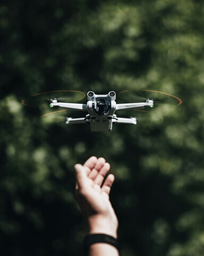
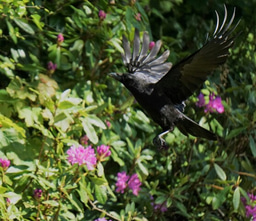

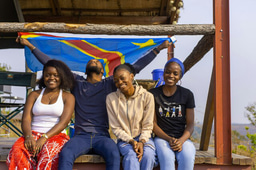
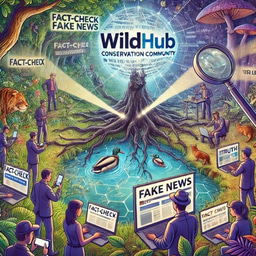
Please sign in or register for FREE
If you are a registered user on WildHub, please sign in